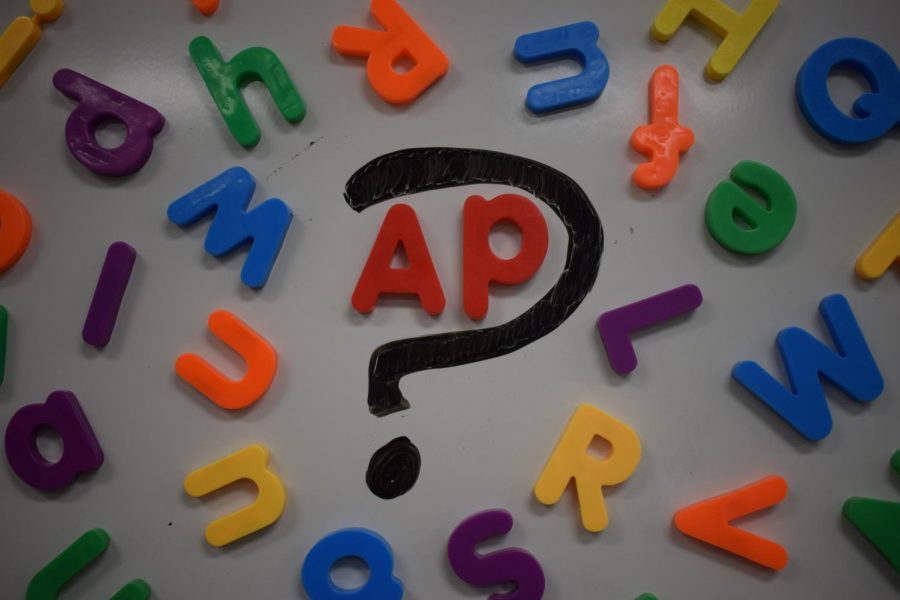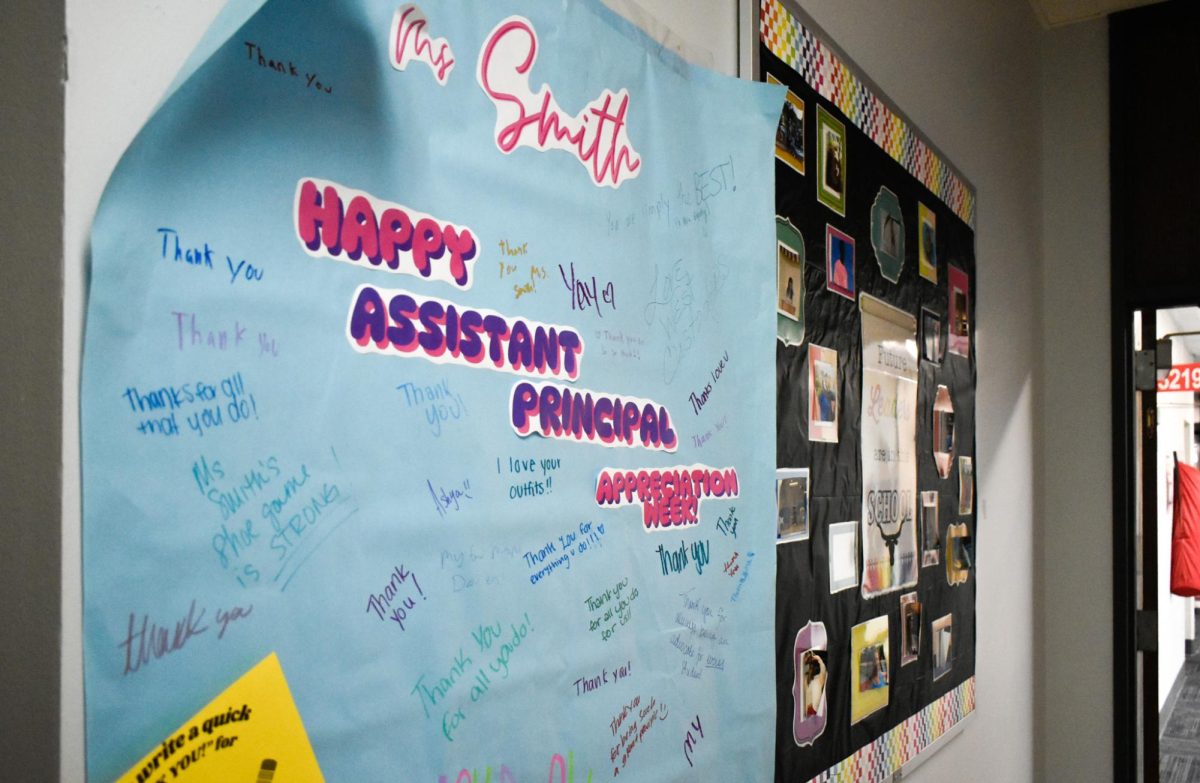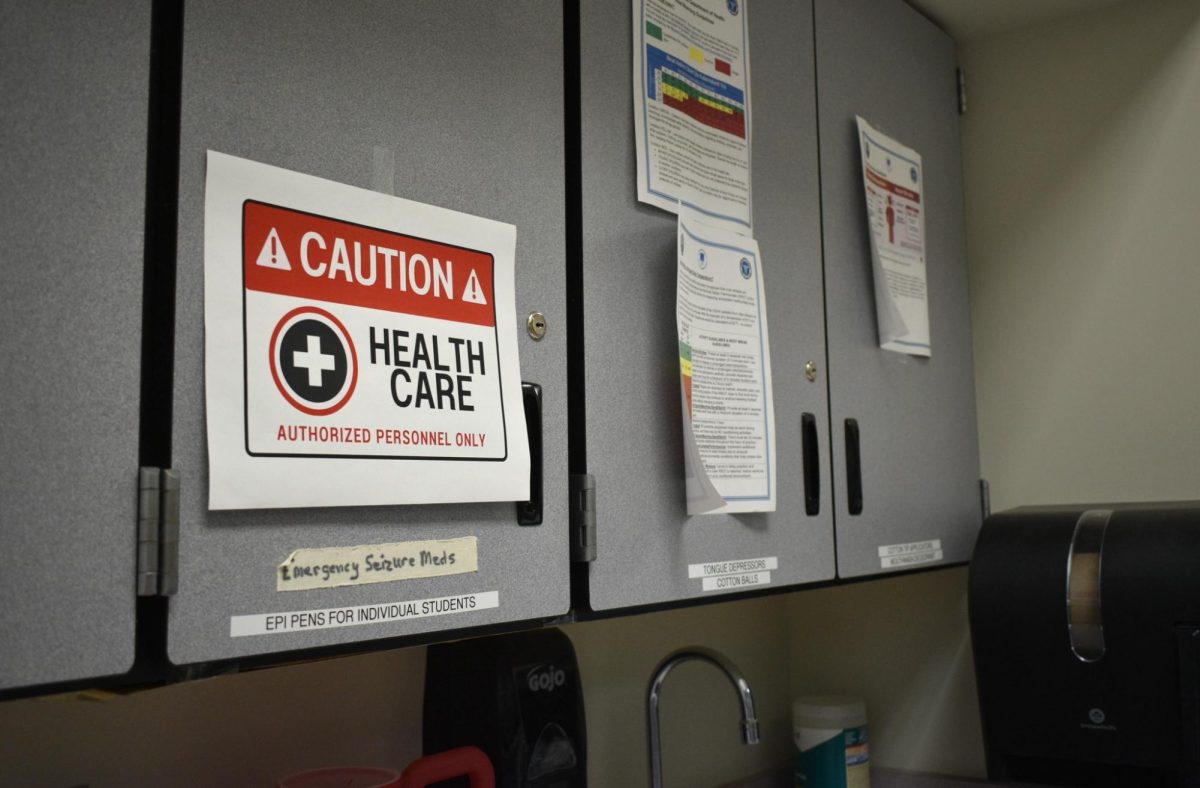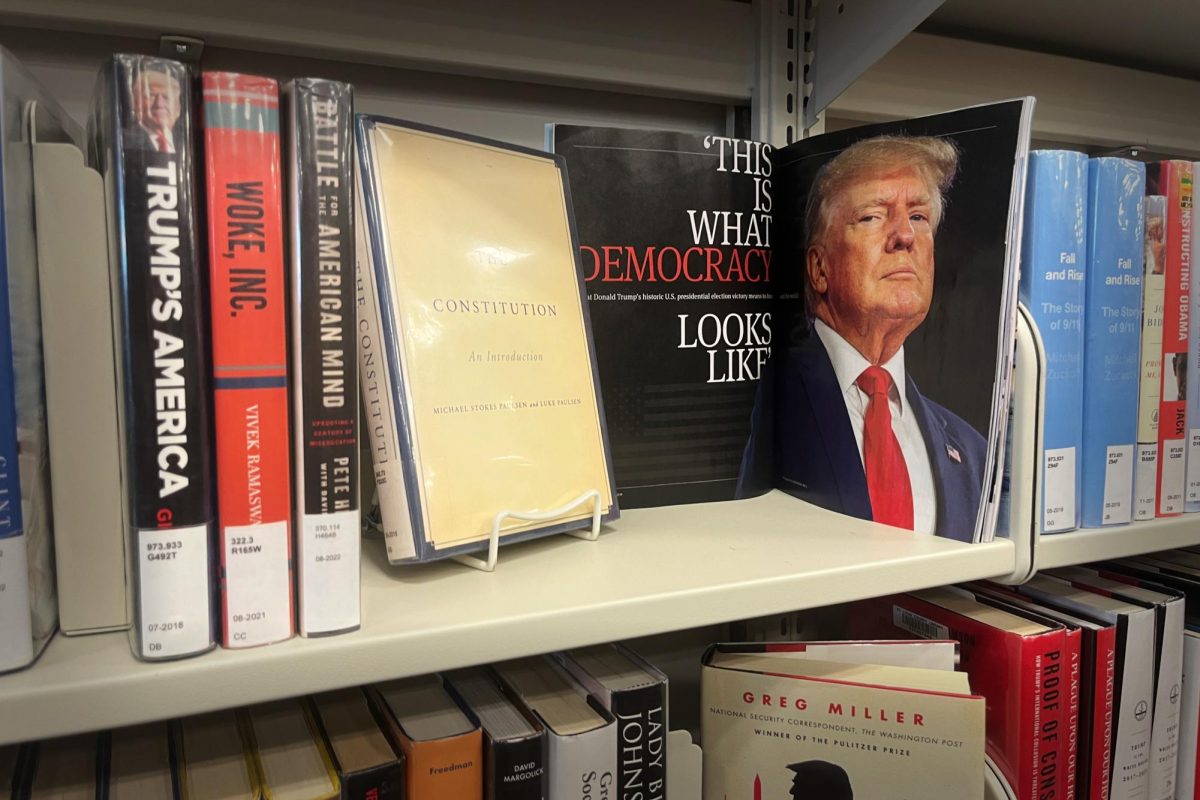Last semester, my AP English Language and Composition class was instructed to complete a survey regarding access to Advanced Placement (AP) courses. After a slew of leading questions expressing the perceived benefits of the AP program, the survey asked about the effectiveness of various persuasion techniques, to which I replied, “stop forcing kids into AP.”
The Parkway School District has made its desire to increase AP participation no secret. In fact, one of Parkway’s self-set indicators of success that students are “positively engag[ing] in an ever-changing world” is whether or not the percentage of students attempting an AP course grew from the previous year. However, a fatal flaw undermines the proliferation of AP: Parkway’s logic assumes that a uniform path is optimal for every student.
The question at hand is if school administrators, for example, ought to hold conferences with individual students urging them to register for courses whose titles are accentuated by the letters AP.
“A friend of mine got called to [principal Jeremey] Mitchell’s office and he had never taken an honors or AP class before. When Dr. Mitchell encouraged him to take AP classes, his GPA started to drop,” senior Ridwan Oyebamiji said. “I don’t think a principal we might see in the hall once a week will be able to read a student well enough to give that recommendation because AP and honors classes are not for every student.”
Indeed, loading up on APs is a prudent decision for some due to the intellectual challenge these courses provide, the potential to earn college credit–and limit tuition costs–through sufficient AP exam scores or a host of other reasons specific to each student. For others, a certain AP course may not be a subject of interest or further clog an already jam-packed schedule with additional schoolwork and stressors. Either way, it is apparent that assessing the advantages and drawbacks to AP is a process too complex with case-by-case factors to be universalized by a blanket philosophy.
This is before addressing the College Board’s merit as an organization increasingly wielding influence over Parkway’s curriculum for advanced courses. As I can attest firsthand, AP classes, intended to prepare students for a single exam in May, frequently ‘teach to the test.’ I can recall numerous instances of teachers developing lesson plans in strict accordance with the AP Course and Exam Descriptions published by the College Board, guidelines they had no say in creating. Similarly, I have had teachers devote class time to examining the scoring rubrics on AP exams as opposed to reviewing subject-relevant content.
Make no mistake: I am not faulting Parkway’s teachers. Like students, they too have been swept up by the district’s AP wave and are oftentimes left to roll with the punches, including sudden changes to course material and exam formatting that can force them into redesigning classes they have taught for years.
The pressure to comply with district expectations risks students feeling coerced into classes ultimately counterproductive to their education. Rhetoric from the top down has metastasized into a culture of hyper-competitiveness at the student-to-student level, with some of my peers adopting the belief that enrollment in non-AP classes is a sign of inferiority and stupidity. Parkway’s motto, “Higher Expectations. Brighter Futures,” has been falsely conflated with College Board exam booklets. As such, the district must reaffirm that the ideal high school experience looks different for every student.



![Leaning on the podium, superintendent Melissa Schneider speaks to Parkway journalism students during a press conference. Schneider joined Parkway in July after working in the Thompson School District in Colorado. “My plan [to bond with students] is to get things on my calendar as much as possible. For example, being in [classes] is very special to me. I am trying to be opportunistic [meeting] kids [and] being in [the school] buildings. I have all the sports schedules and the fine arts schedules on my calendar, so that when I'm available, I can get to them,” Schneider said.](https://pwestpathfinder.com/wp-content/uploads/2025/09/IMG_5425-1200x943.jpeg)


![Red, white and blue, the American flag holds the values of our democracy. The fight that we once endured has returned, as student journalists and senior correspondents across the country are losing their voices due to government control. “[Are] the White House and [the] government limiting free speech [and] freedom of the press? Yes [they are],” chief communications officer of the Parkway School District and former journalist Elisa Tomich said.](https://pwestpathfinder.com/wp-content/uploads/2025/03/Untitled-design-14.jpg)
![A board in the Parkway West counseling department displays pennants of selective universities. With a wide range of students interested in attending, it’s important that these schools have clear priorities when deciding who to admit. “[Washington University] had the major that I wanted, psychology, philosophy, neuroscience. That's a holistic study of the brain, and [WashU is] the only college in the world that offers that. That's the main reason I wanted to go; I got into that program,” senior Dima Layth said.](https://pwestpathfinder.com/wp-content/uploads/2025/02/Flag-1.png)

![Within the U.S., the busiest shopping period of the year is Cyber Week, the time from Thanksgiving through Black Friday and Cyber Monday. This year, shoppers spent $13.3 billion on Cyber Monday, which is a 7.3% year-over-year increase from 2023. “When I was younger, I would always be out with my mom getting Christmas gifts or just shopping in general. Now, as she has gotten older, I've noticed [that almost] every day, I'll open the front door and there's three packages that my mom has ordered. Part of that is she just doesn't always have the time to go to a store for 30 minutes to an hour, but the other part is when she gets bored, she has easy access to [shopping],” junior Grace Garetson said.](https://pwestpathfinder.com/wp-content/uploads/2024/12/DSC_0249.JPG-1200x801.jpg)

![Senior Sally Peters stands in the history hallway, contemplating her choices in the 2024 United States and Missouri elections on Nov. 5. As a member of Diplomacy Club, Peters has discussed key candidates and issues in contemporary American politics. “[As students], we're starting to become adults. We're realizing how much the policies that are enforced and the laws that make it through the House and Senate are starting to affect us. [Opportunities such as] AP [U.S.Government] and Diplomacy Club [make elections feel] a lot more real,” Diplomacy Club vice president and senior Nidhisha Pejathaya said.](https://pwestpathfinder.com/wp-content/uploads/2024/10/Flag-1-1.png)
![Mounting school pressure can leave many students overworked and overstressed. Schools must give students the necessary resources to help assuage student mental health issues and prevent the development of serious crises. “The biggest thing [schools] can do [to protect student mental health] is offer more time [to do work], like a study hall, or offer more support from teachers so that students don't feel stressed out and can get help in areas that they need,” senior Bhavya Gupta said.](https://pwestpathfinder.com/wp-content/uploads/2024/09/unnamed-4.jpg)

Alina Dunder • Jan 14, 2020 at 5:38 pm
I relate to this on such a deep level. Even though I’m in AP classes, I’ve always felt that if I wasn’t taking them that I was just dumber than everyone else who was/is.
Arden • Jan 13, 2020 at 3:37 pm
This is amazing! I’m glad we are united on this issue.